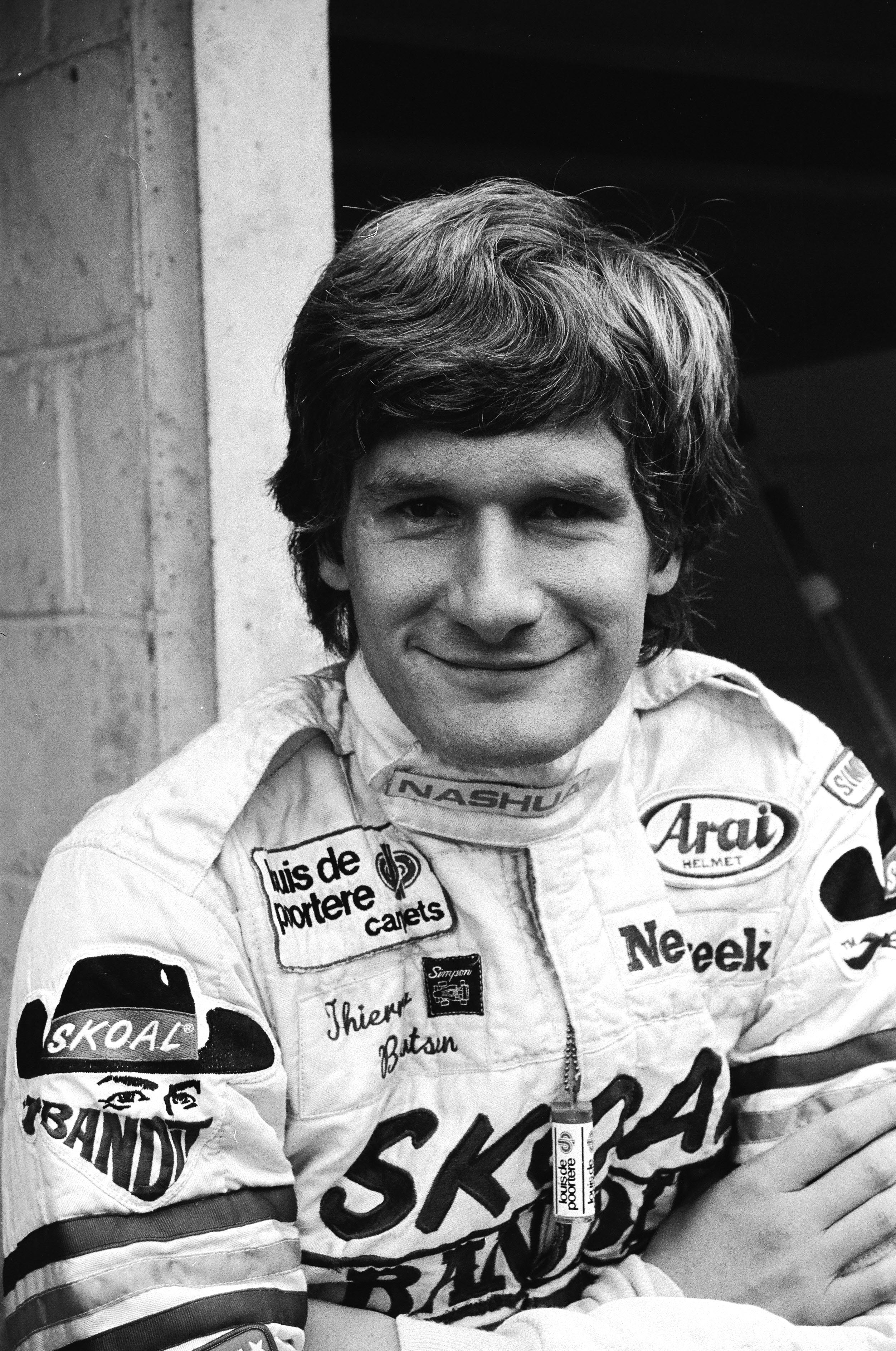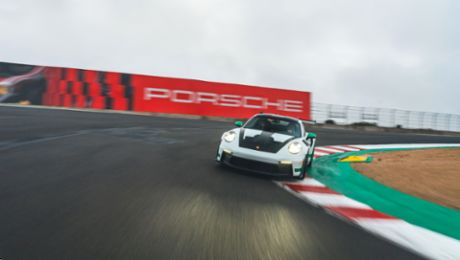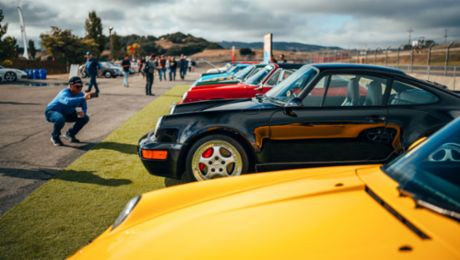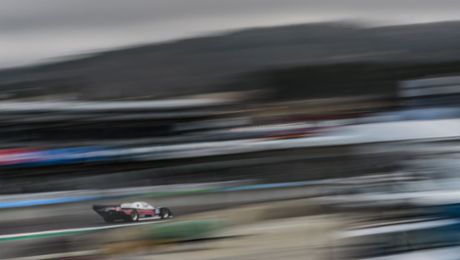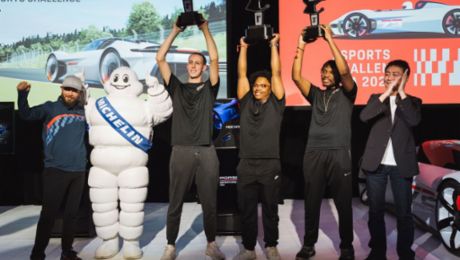Atlanta. At Rennsport Reunion, we celebrate the stories and accomplishments of legendary drivers that gave their all for Porsche. Each week leading up to the event, we will showcase drivers and share their stories. These are the heroes of Rennsport Reunion 7 for the week of July 21:Richard Attwood, Dick Barbour, Derek Bell, Jon Bennett, Timo Bernhard and Thierry Boutsen.
Richard Attwood
One of the most successful Porsche factory drivers, Richard Attwood, together with Hans Herrmann, achieved the first overall victory for Porsche at the 24 Hours of Le Mans in a 4.5-litre 917 KH. A year earlier, he had led the 1969 race until, in the 21st hour, a gearbox failure forced retirement. The 1971 24 Hours of Le Mans saw Attwood claim another podium, this time in second place, again in a 917 KH.
The Briton’s racing career started at the wheel of a Standard Ten, before graduating to a Triumph TR3 in 1960 and then onto single-seaters racing in Formula Junior for the 1961 season. He competed in 17 F1 grands prix during the ‘60s, racing for the likes of BRM, Lotus and Cooper. His F1 achievements include a second place at the 1968 Monaco Grand Prix behind the legendary Graham Hill. Back in the early ‘60s, with a simple desire to go racing and no thoughts beyond a season at club level, Attwood could never have imagined he would go on to become such a legendary figure in Porsche motorsport. In 2019, Richard became Patron-in-Chief of the Historic Sports Car Club (HSSC) with whom he has regularly raced Porsche 928s and 911s.
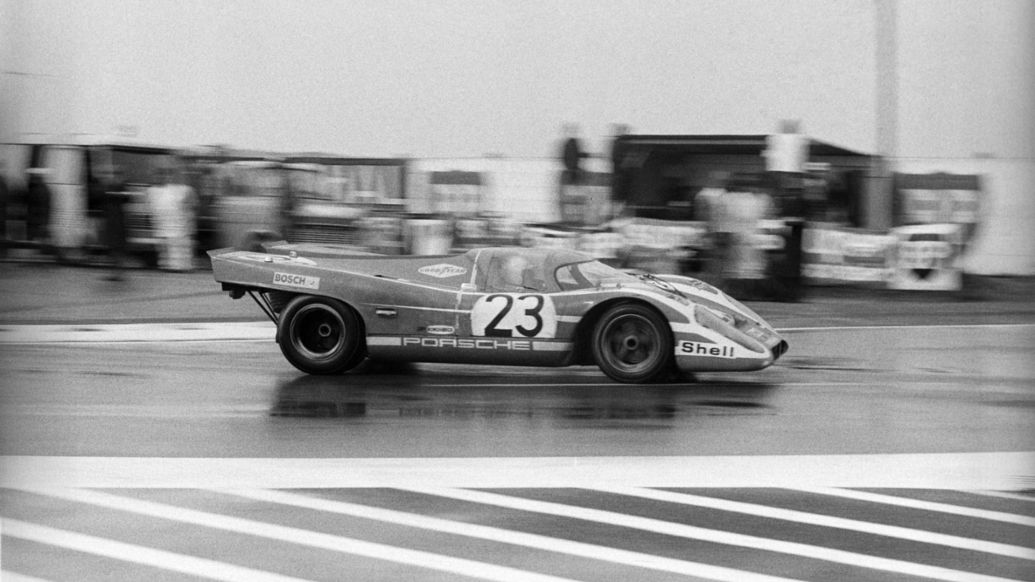
Dick Barbour
Both at the wheel and as an off-track force behind racing campaigns, Dick Barbour experienced phenomenal success at the major endurance races. The native Californian began his relationship with the Porsche brand in the 1960s when he and his modification and repair shop, Automotion, would work on Porsche sports cars. Before long, his reputation led him to opening a Porsche and Audi franchise. Around this time, Barbour started racing sports cars and, over the next few decades, he forged a spectacular racing career—with Porsche cars at the heart of his biggest successes.
Between 1978 and 1980, he achieved three consecutive class wins at the 24 Hours of Le Mans, while the team —Dick Barbour Racing—enjoyed consecutive overall victories at the 12 Hours of Sebring.
Barbour, along with his co-driver John Fitzpatrick, claimed a combined 14 wins in 1980 with the iconic Porsche 935 K3, claiming the IMSA GT Championship in the process. In recognition of their success that year, John Fitzpatrick was awarded the prestigious Porsche Cup.
Following the success of 1980, Dick Barbour Racing was absent from racing for two decades before making a sensational comeback in 2000. The team, racing a Porsche 911 GT3 R, won nine of the 12 races in the American Le Mans Series GT Championship—earning the Teams’ Championship title as well as the Drivers’ Championship title for Dirk Müller.
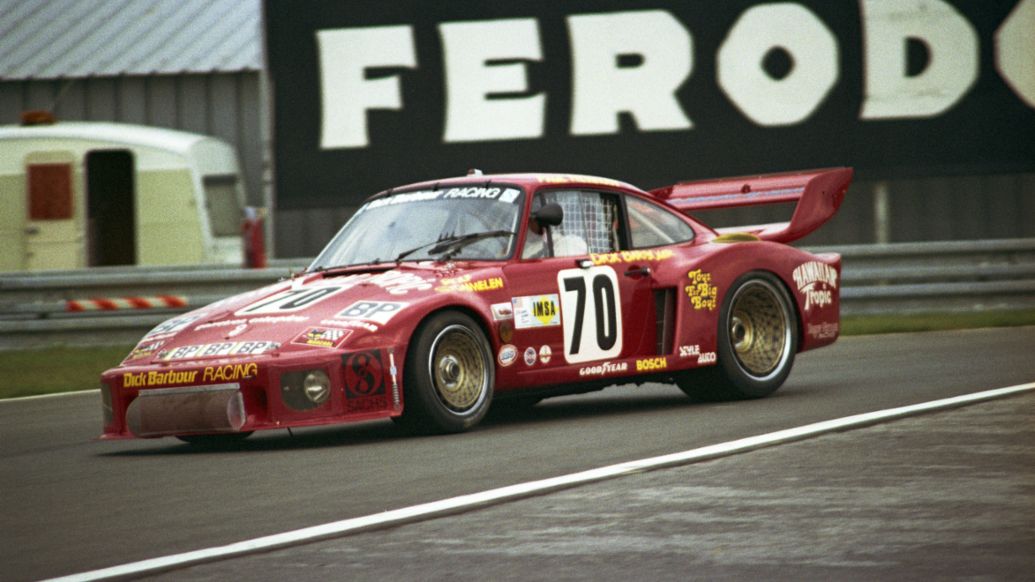
Derek Bell MBE
Derek Bell MBE has often been described by fellow racers as being one of the most liked drivers of his generation. No doubt these kind words are uttered with just a hint of envy — and heaps of respect — of his spectacular competitive record. His racing career began in 1964 in British club events where, at the wheel of a Lotus Seven, he claimed a win in his very first race. His early performances quickly propelled him through the racing categories. He turned professional within three years when he was offered a European Formula Two Championship drive with Ferrari. Between 1968 and 1974 he competed in 16 F1 Grands Prix with various manufacturers.
It was from the early 1970s that Bell started finding success and fame in sports car racing. He made his first 24 Hours of Le Mans start in 1970 with Ferrari, before making his first appearance as a Porsche works driver at the 1971 race. His Le Mans record is truly staggering. Only two drivers have achieved more race wins there, and of his five victories, four were achieved with Porsche: in 1981 (936/81), 1982 (956), 1986 (962), and 1987 (962). He also claimed the 1985 and 1986 World Sportscar Championship with the brand—achievements for which he was inducted into the FIA Hall of Fame.
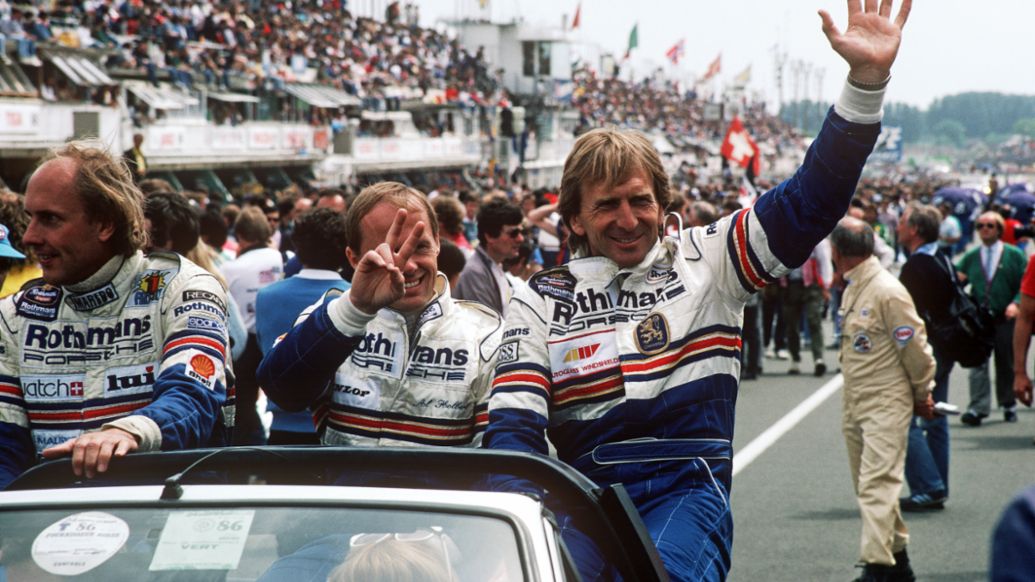
Jon Bennett
Born in Fort Knox, Kentucky in 1965, Jon Bennett has been a stalwart of IMSA sports car racing. In 2010 he founded CORE Autosport, based out of Rock Hill, South Carolina. The team went on to achieve championship success in the Prototype Challenge, GTLM and LMP3 classes, as well as race wins in the top-level Prototype category.
CORE Autosport won the IMSA Lites Championship in their debut season, but Bennett wanted more. The team made the step up to competing in Prototype Challenge in 2011 and won five consecutive Teams’ Championships between 2011 and 2015, with Bennett and his co-driver, Colin Braun, winning the Drivers’ Championship in 2014 and 2015. Despite this dominant success, CORE Racing set their sights even higher and entered the Prototype class for the 2018 IMSA SportsCar Championship. Two wins and four podiums in the second half of the season put them three points off both the Drivers’ and Teams’ Championships.
In 2014, CORE Autosport partnered with Porsche, with factory-backing for two 911 RSRs in the GTLM category. After seven seasons, starting with a win in the maiden outing at the 24 Hours of Daytona, the partnership ended with a victory at the 12 Hours of Sebring in 2020. In the debut season, Porsche took the manufacturers’ title. The 2015 season brought the drivers’, manufacturers’ and the teams’ titles, with four wins and six podiums. The 2019 campaign resulted in another clean sweep of titles and a five-race win streak — a first in the GTLM category – with the Porsche 911 RSR-19.
Timo Bernhard
In May 1999, Timo Bernhard began his Porsche journey as a Porsche Junior, the start of a long and illustrious career in which he won championships at every level of sports car racing on the Porsche Motorsport Pyramid. He won the Porsche Carrera Cup Germany in 2001, the 2004 GT title in the American Le Mans Series, the 2007 and 2008 LMP2 ALMS Championship, and the World Endurance Drivers’ Championship in 2015 and 2017. He also posted wins at all the major endurance races: five-time winner at the 24 Hours of Nürburgring, three-time winner at the 24 Hours of Le Mans, two-time winner of the 12 Hours of Sebring and two-time winner of the 24 Hours of Daytona.
Bernhard played a significant role in the testing and development of the Porsche 919 Hybrid – a car which brought three overall Le Mans Victories for Porsche, as well as three Constructors’ and three Drivers’ titles in the World Endurance Championship. In 2018, he gave the car a fitting farewell as part of the 919 Tribute Tour, setting a Nürburgring Nordschleife lap record of 5 minutes 19.546 seconds in the 919 Hybrid Evo.
Following the end of the Porsche LMP1 program in 2017, Bernhard began to split his time between commitments as a Porsche works driver and managing his own race team, KÜS Team75 Bernhard. His team continues his strong link with Porsche, and even provided the first ever DTM (Deutsche Tourenwagen Masters) win for the brand. In 2019, Timo Bernhard was inducted into the FIA Hall of Fame.
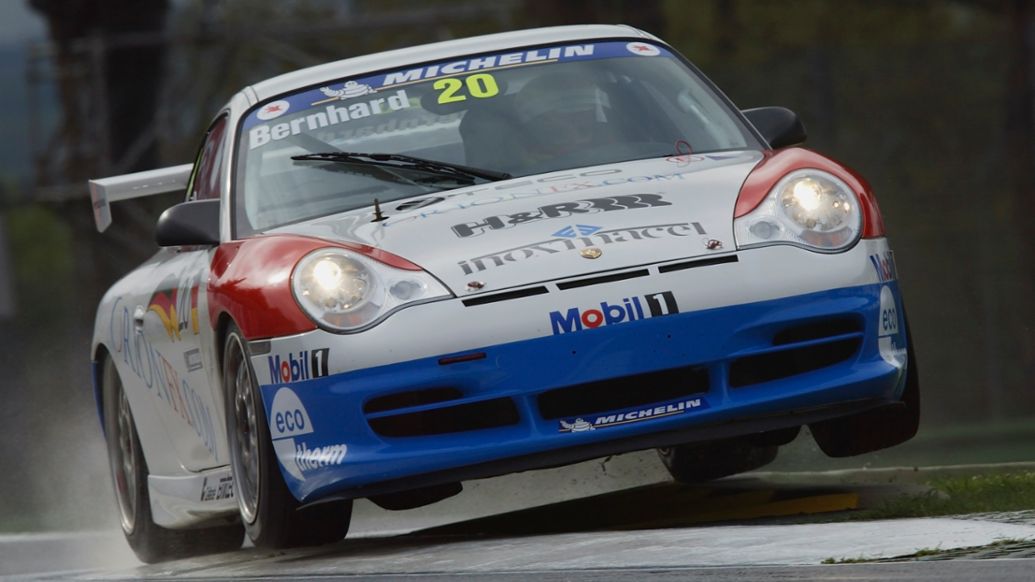
Thierry Boutsen
Popular Belgian Thierry Boutsen made a name for himself in Formula One but became a hero in sports car racing. 15 wins in 18 races secured Boutsen the 1978 Benelux Formula Ford Championship but, more effectively carried him into European Formula Three for the 1979 and 1980 seasons, where he narrowly missed out on the 1980 championship title. He started the 1983 season in sports car racing, winning the opening race of the World Endurance Championship at Monza in a Porsche 956. He added wins piloting a Porsche 962 in the 1985 24 Hours of Daytona and the 1986 1000km of Spa to his growing resume.
Racing in F1 from 1983, he spent four seasons with the Arrows team, achieving seven points-scoring finishes—including second place at the 1985 San Marino Grand Prix. Boutsen moved to Benetton for 1987 and 1988 and took fourth place in the 1988 Drivers’ Championship. He then spent two years with Williams and won three grands prix. Two seasons with Ligier and a season with Jordan brought Boutsen’s time in open-wheel racing to a close, choosing to leave F1 to focus on sports car racing.
Boutsen made 10 starts at the 24 Hours of Le Mans, five of them behind the wheel of a Porsche. Between 1993 and 1996, he secured four consecutive podium finishes at Le Mans – including a class win in the Porsche 911 GT1 in 1996. Further victories, at the 4 Hours of Brands Hatch and the 4 Hours of Spa-Francorchamps, followed the same year. Boutsen spent another three seasons racing Porsche sports cars, a period which included winning the 1998 24 Hours of Zolder in a 911 RSR, before retiring from racing in 1999.
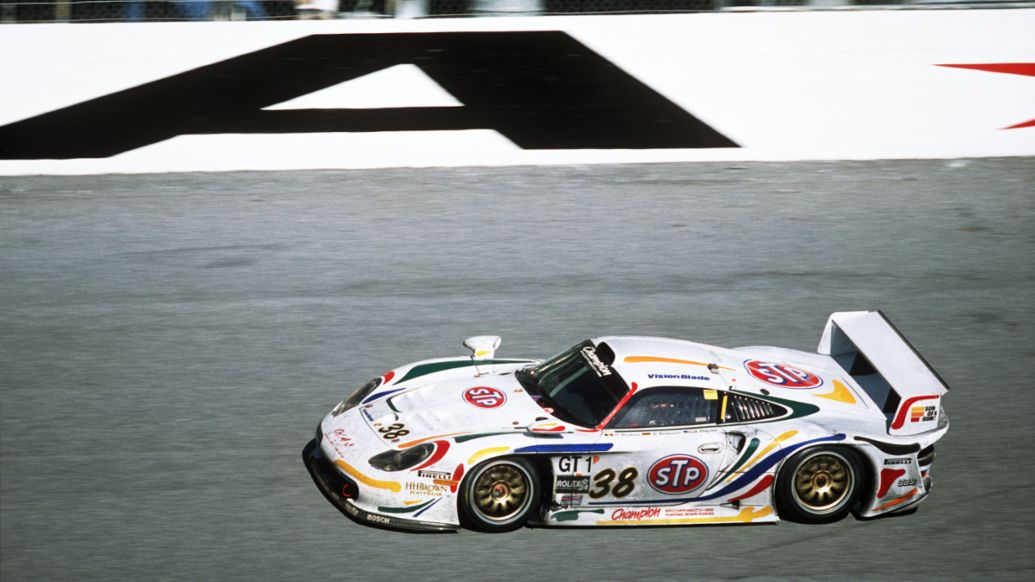
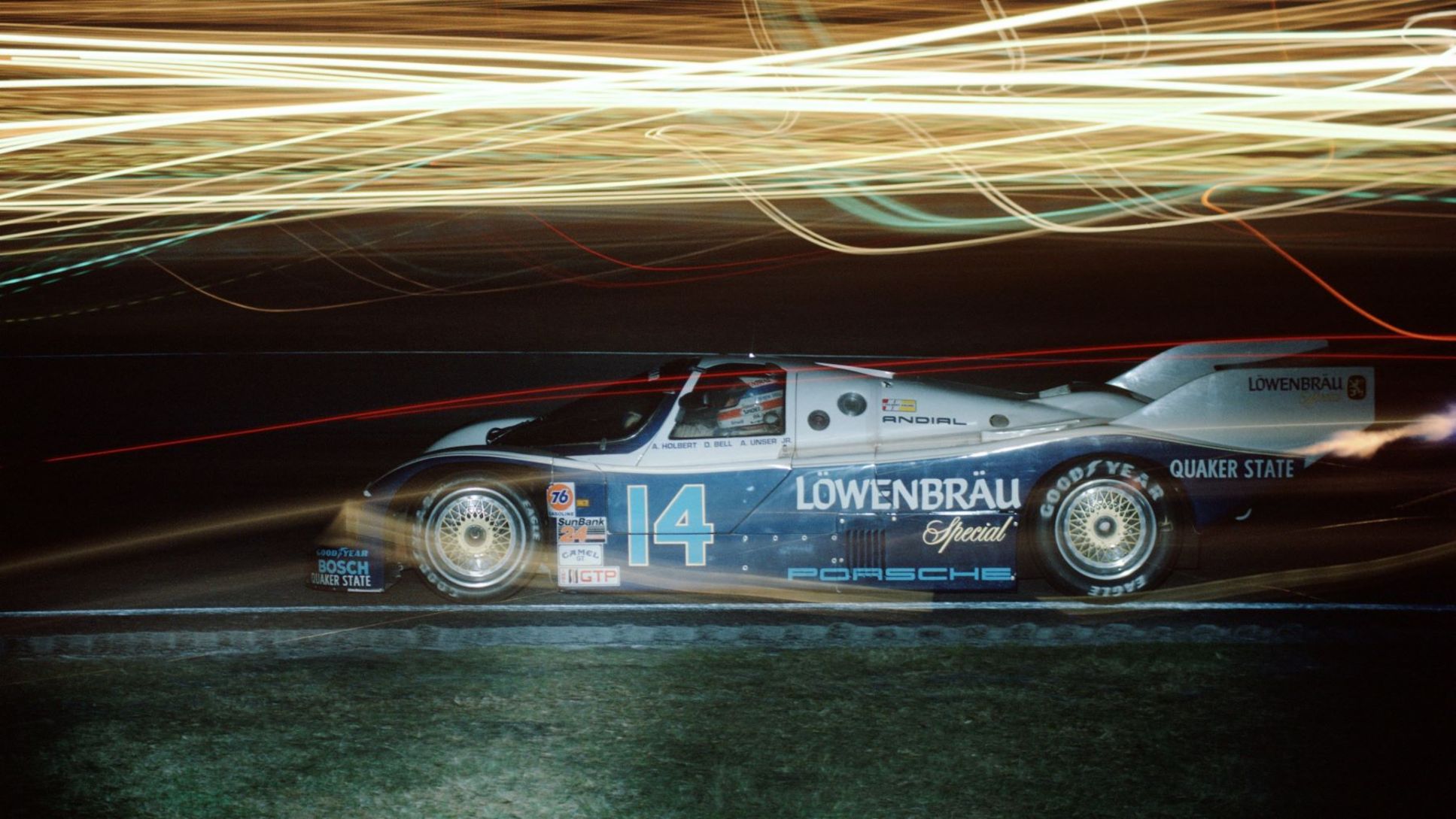
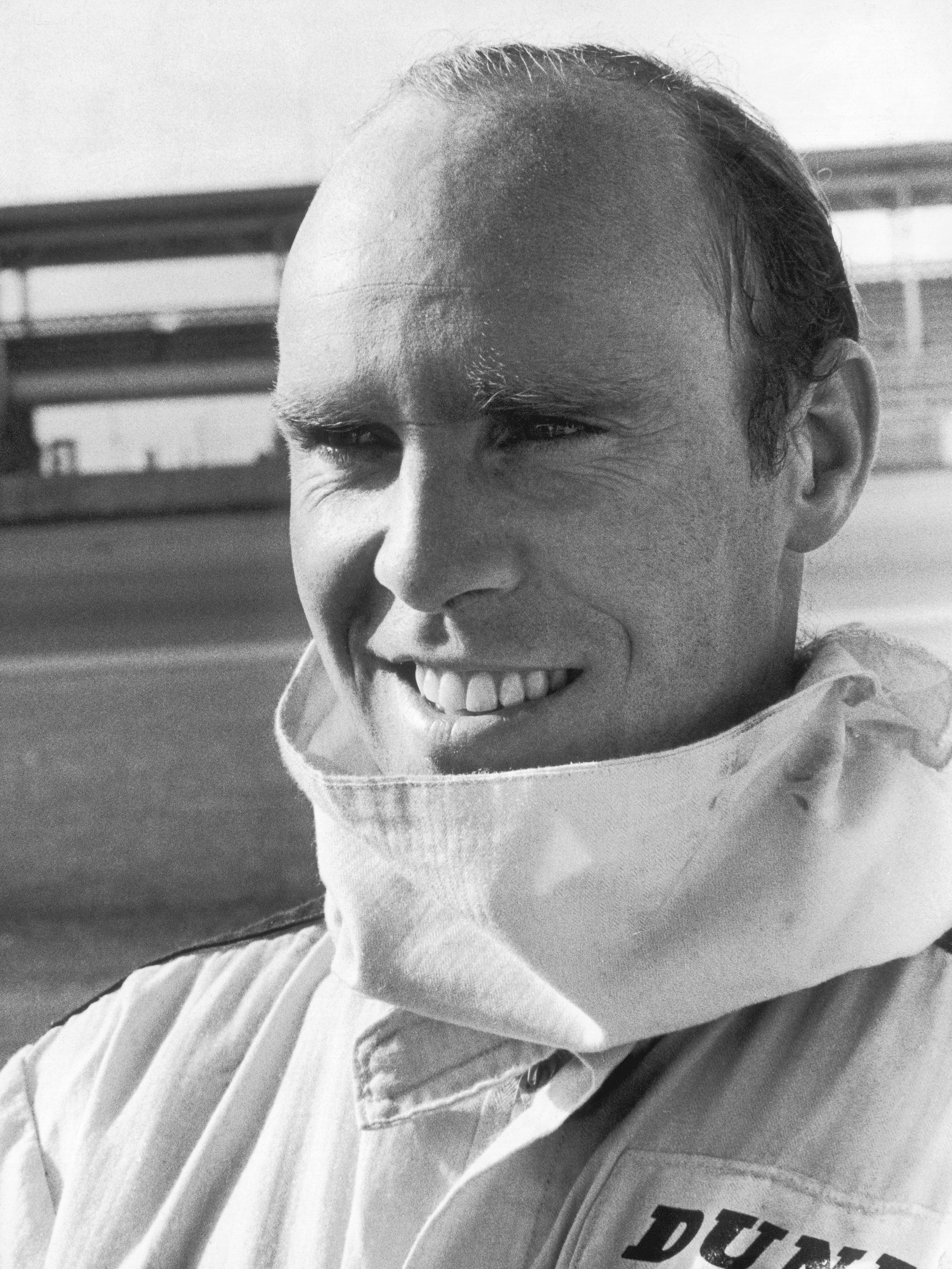
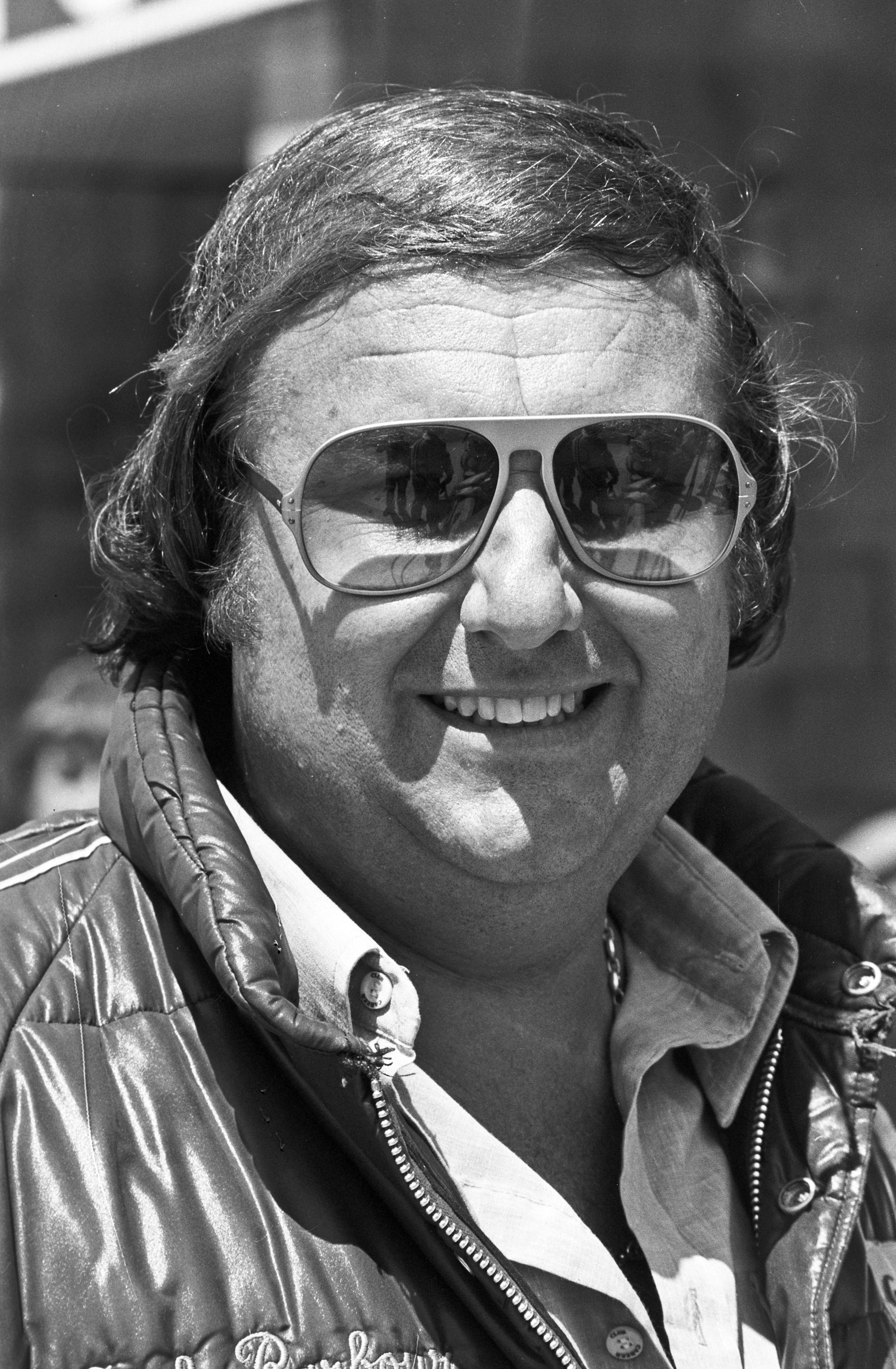
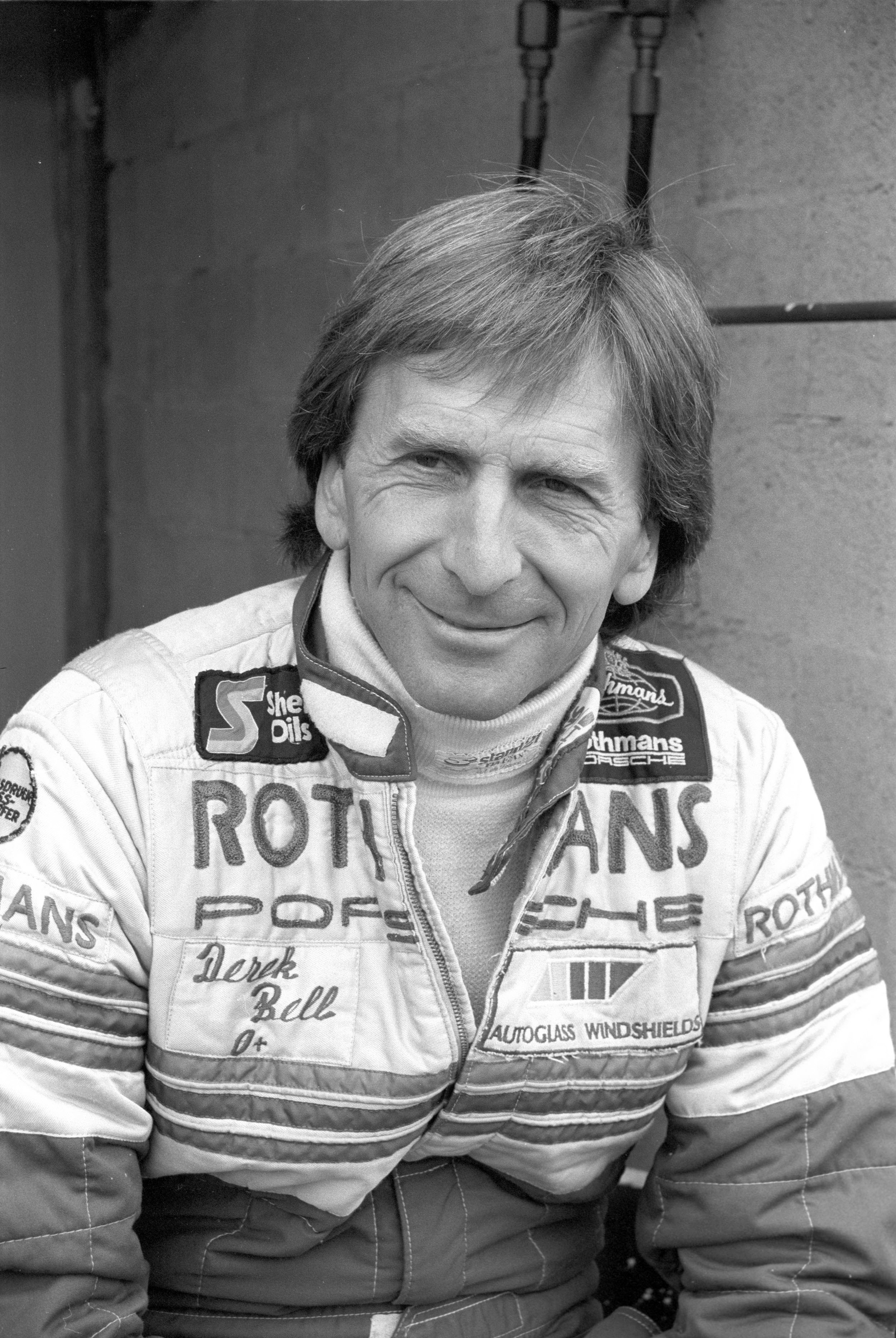
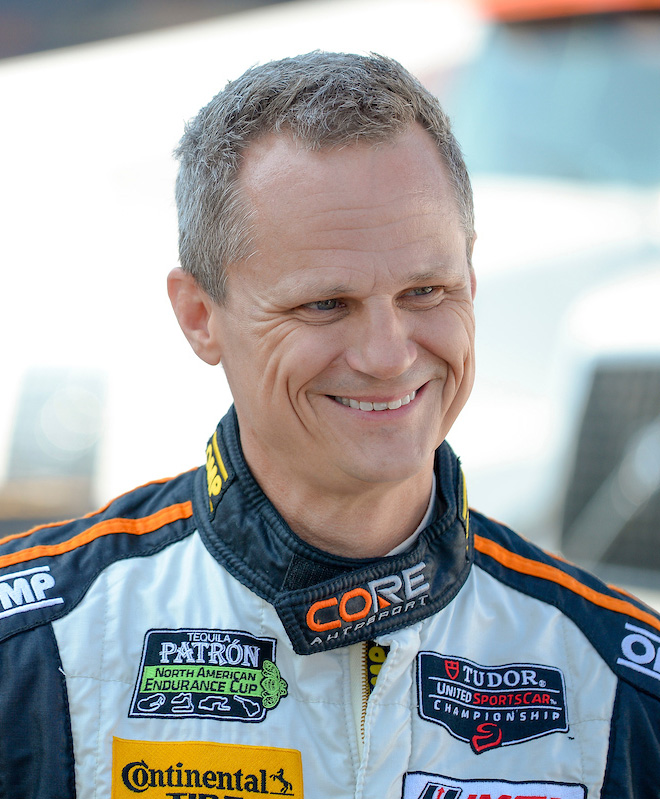
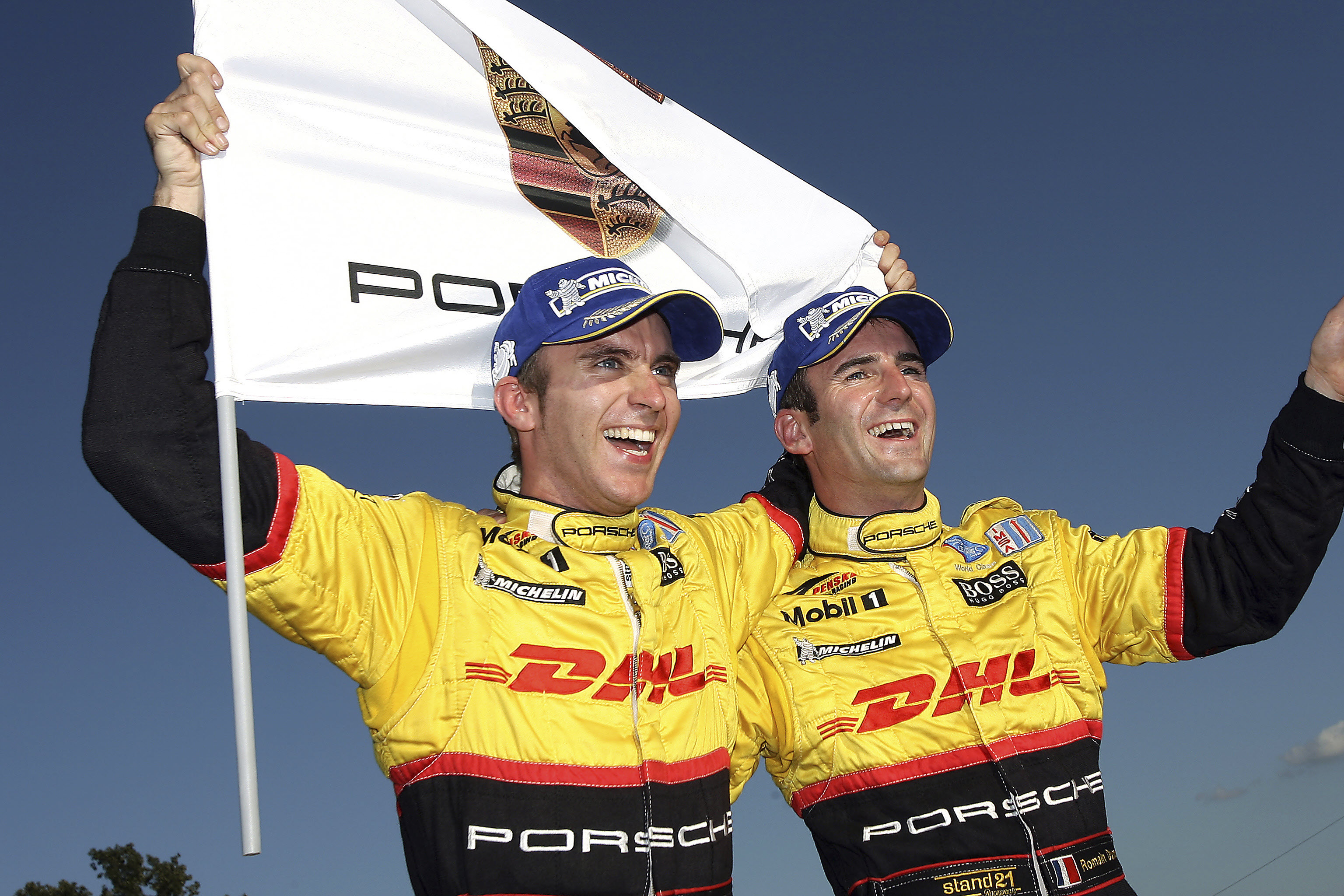%20and%20Romain%20Dumas%20celebrate%20a%20Porsche%20RS%20Spyder%20victory.jpg)
